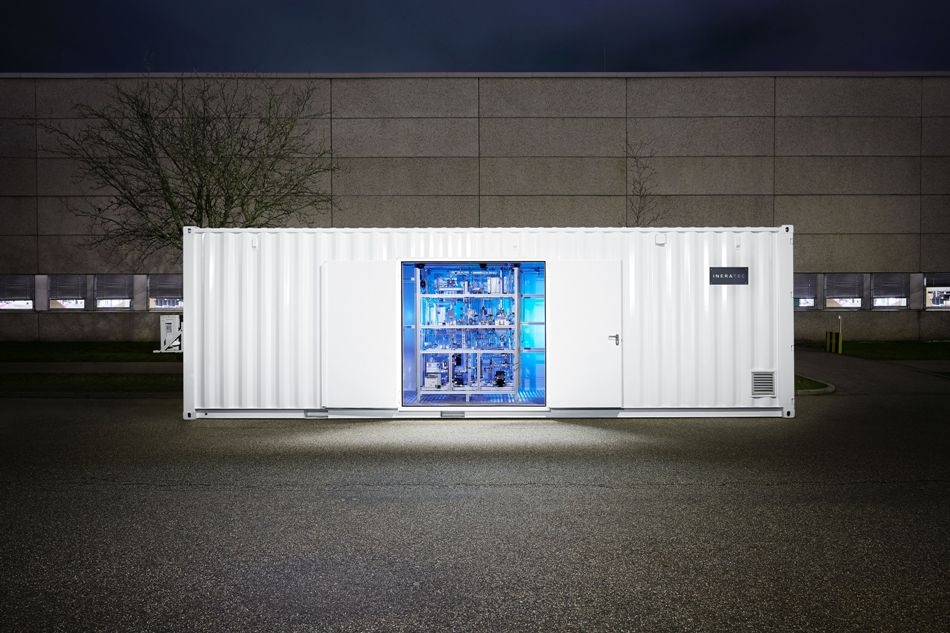Using core equipment from INERATEC, a spin-off of Karlsruhe Institute of Technology (KIT), a pilot plant near Barcelona, Spain, produces synthetic natural gas from renewable electricity and carbon dioxide (CO2).
 INERATEC builds chemical reactors that are so compact that the entire system fits into a ship's container when assembled. (Photo: INERATEC/Hauser)
INERATEC builds chemical reactors that are so compact that the entire system fits into a ship's container when assembled. (Photo: INERATEC/Hauser)
INERATEC and the Spanish energy company GAS NATURAL FENOSA are taking a crucial step towards a closed carbon dioxide cycle. In the Catalan Sabadell, they have erected a plant that uses climate-damaging CO2 and renewable energy hydrogen to produce synthetic natural gas. The process is based on the manufacture of hydrogen by electrolysis and its reaction with CO2 from biogenic sources — for instance, sewage sludge.
The raw materials are plentiful as the sewage treatment plant caters to the 200,000 inhabitant city of Sabadell in Greater Barcelona, explained by INERATEC Managing Director Tim Böltken.
The process uses energy from renewable sources and stores it in the chemical energy source methane. Over the past four years, Spain has already generated 40 percent of its electricity from renewable energy sources - mostly wind power.
Tim Böltken, Managing Director, INERATEC
The power-to-gas process converts excess or decentralized electricity from renewable sources such as wind or solar into methane.
The aim is to create renewable gases that are compatible with the current natural gas supply in Spain. The big benefit: The renewable gas can be stored in the present gas infrastructure and conveyed to areas all across Spain. The gas storage capacity in Spain is around 30 terawatt hours, which means that the electricity produced in wind turbines there can be stored for six months.
Thus far, such decentralized production was not economically feasible as the chemical process typically requires very expensive, large-scale chemical plants. The founders of INERATEC achieved a breakthrough by designing the right chemical reactor technology, which, for instance, can be fit into a ship's container. The capacity of the completely assembled, modular compact system can be expanded as required.
The pilot plant in Sabadell will primarily generate 100 m3 of gas daily. It is also provided with a catalyst created by the Catalonia Institute for Energy Research (IREC) for the conversion of CO2 from biogenic sources. The plant is part of the Spanish project Synthetic Fuels — Combustibles Sintètics (CoSin), financed by the European Regional Development Fund.